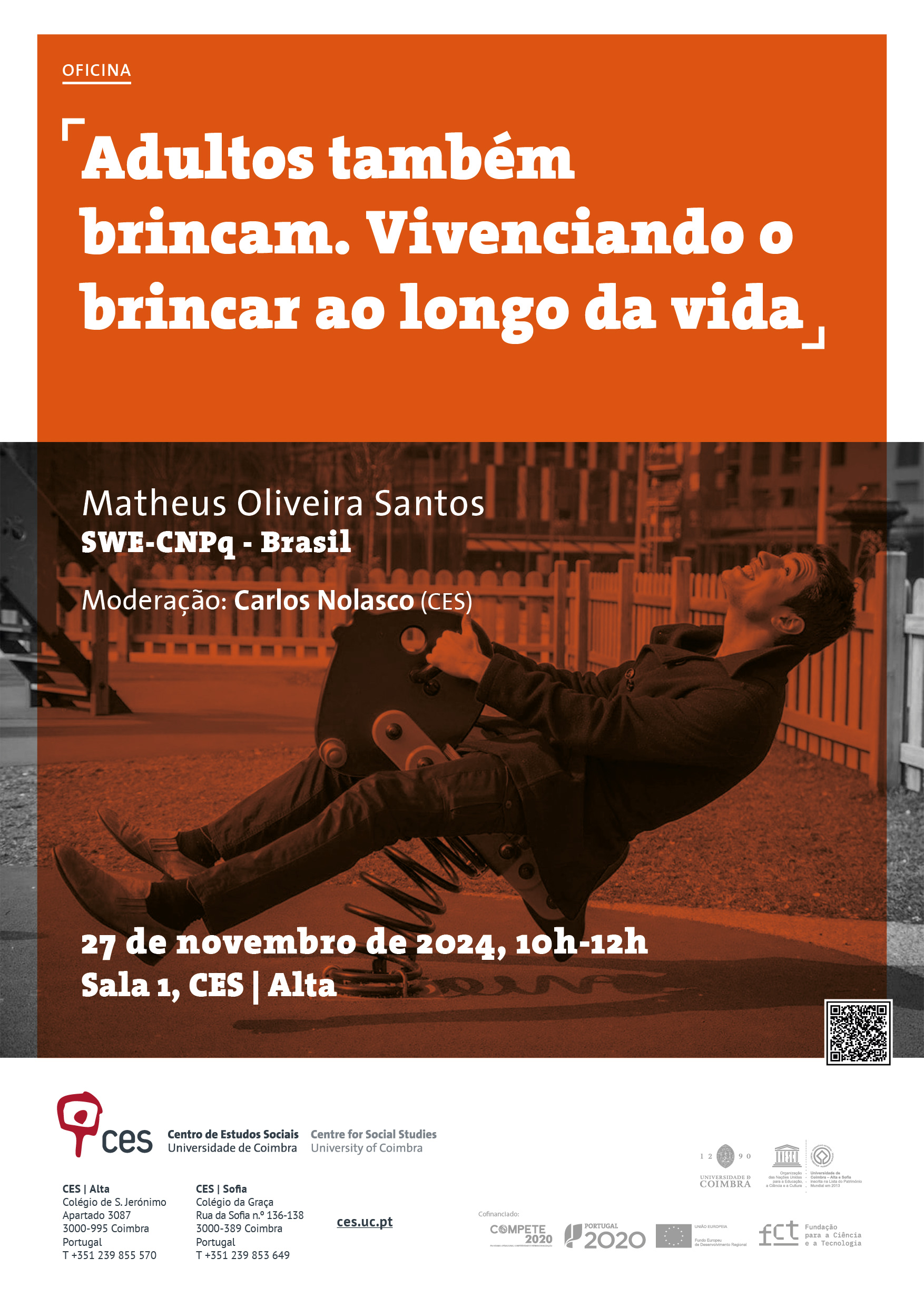Workshop
Adults play too. Experiencing play throughout life.
Matheus Oliveira Santos (SWE-CNPq - Brasil)
November 27, 2024, 10h00-12h00
Room 1, CES | Alta
Play is commonly associated with childhood and is considered a central activity for children's integral development. However, this limited understanding overlooks the depth of play as a social and cultural phenomenon that goes beyond the boundaries of childhood and plays a fundamental role throughout life. Studies in education, physical education, psychology and sociology show that play has a social and symbolic function that goes beyond the stages of life, functioning as a universal language of expression, creativity and cultural resistance.
Matheus Oliveira Santos' doctoral research explores leisure as a vehicle and object of education, analysing how playful practices contribute to building interpersonal relationships, integral development and good living.
In this workshop, we invite adults to connect with the practice of play. Through a relaxed conversation and participatory dynamics, we will experience playful activities, traditional games and new forms of play. We'll reflect on how play can promote joy, personal satisfaction, interpersonal relationships and a quality life.
Moderator: Carlos Nolasco (CES)
Bio note
Matheus Oliveira Santos | Degree in Physical Education from the Federal University of São Carlos (UFSCar-Brazil). Master's and PhD student in Education in the Postgraduate Programme in Education (PPGE) at UFSCar. Santos is doing a doctoral internship at the Centre for Social Studies (CES) of the University of Coimbra (UC) with a Sandwich Doctorate Abroad (SWE) scholarship funded by the National Council for Scientific and Technological Development (CNPq - Brazil). Educator of the social project “Vivências em Atividades Diversificadas de Lazer” (VADL) at UFSCar-Brazil. Partner-researcher at the Society for Qualitative Research in Human Motricity (SPQMH). Santos takes part in the international co-operation research project “Motricidades do Sul: Contra o Desperdício da Experiência” (Motricities of the South: Against the Waste of Experience).


